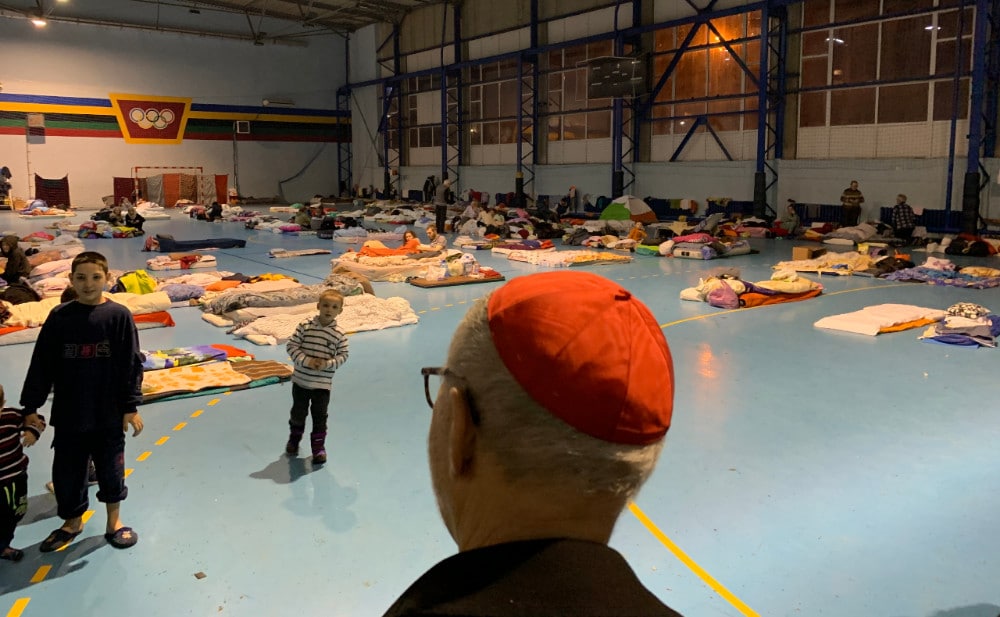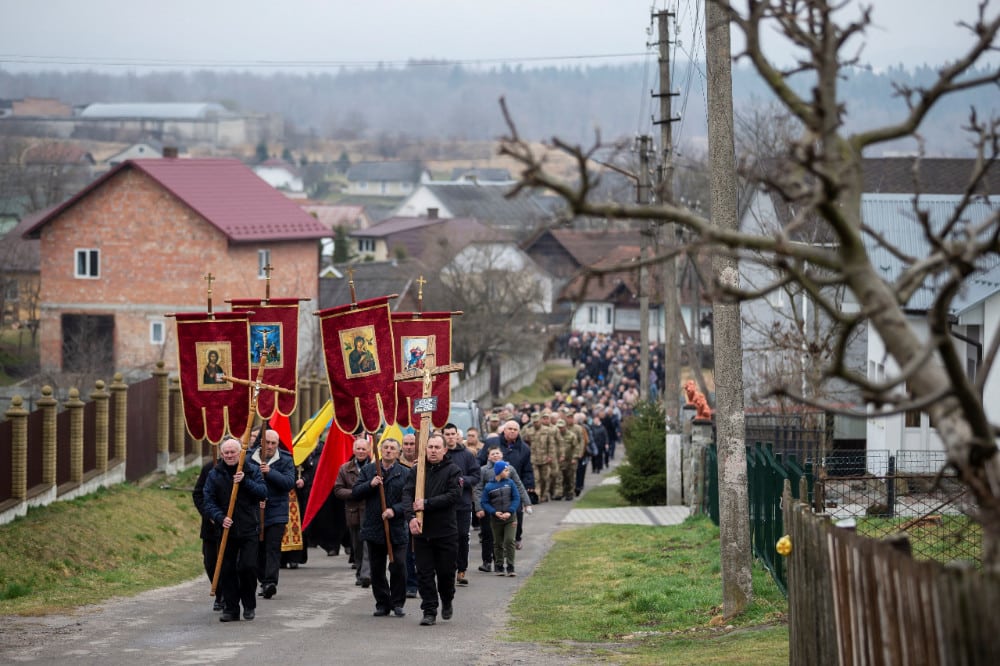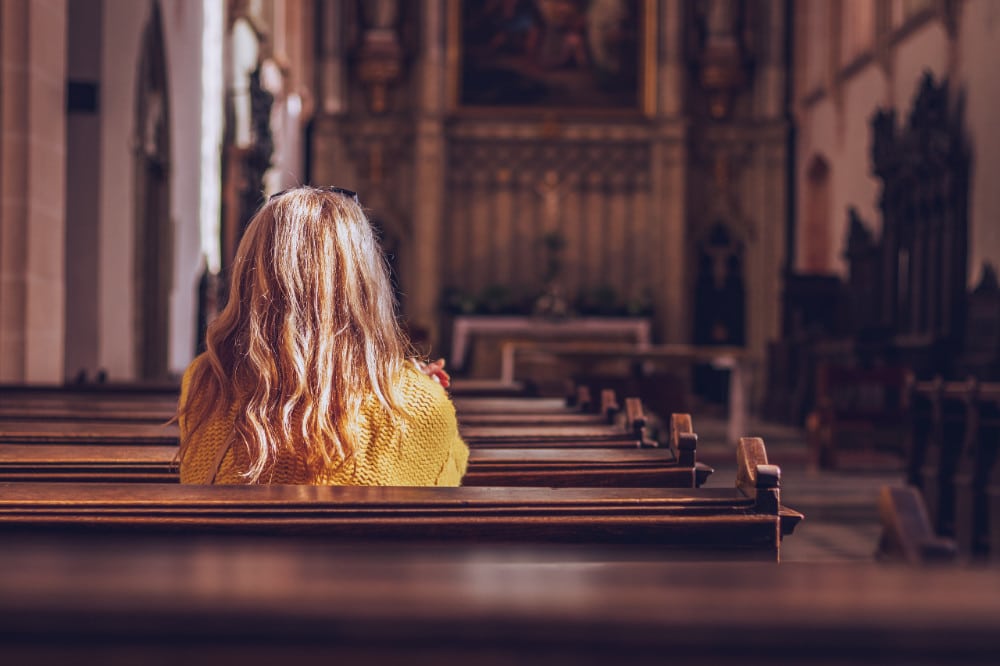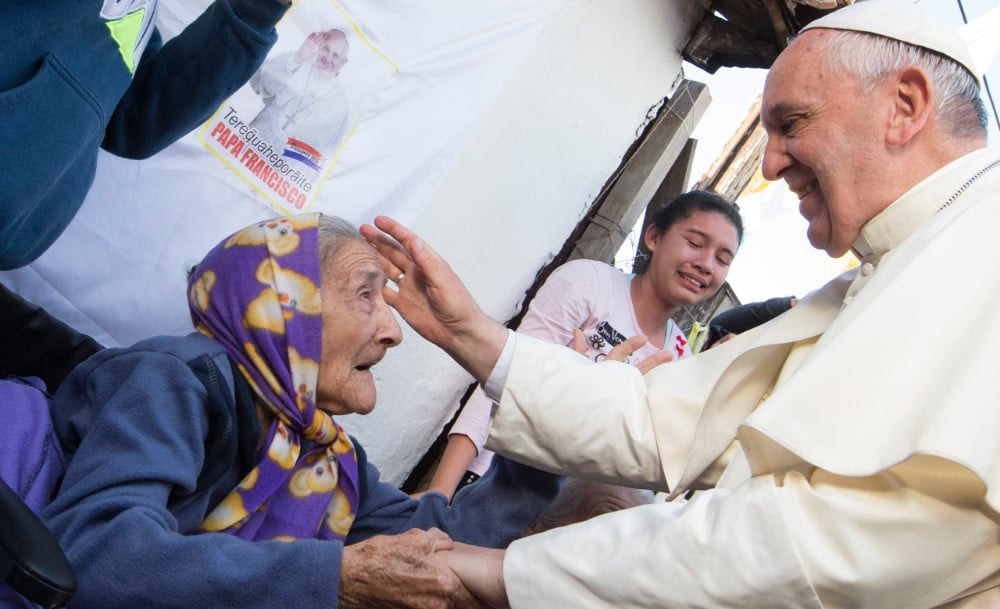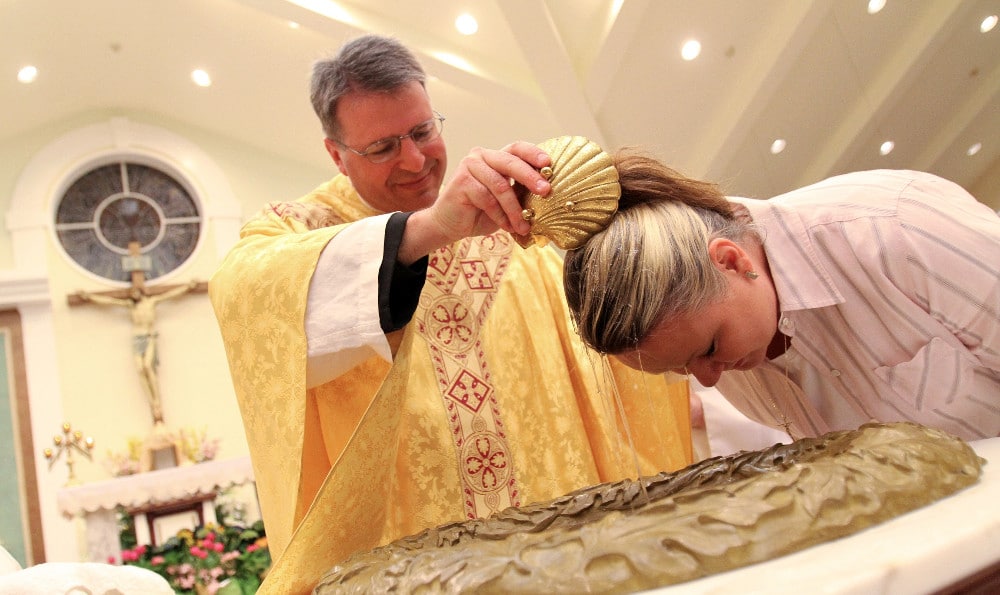Nearly 30 years ago, I represented a slight, unassuming teen who had fled Haiti in an unseaworthy boat. The U.S. Coast Guard interdicted the boat and transported its occupants to Guantánamo Naval Base in Cuba. At Guantánamo, U.S. officials interviewed this “unaccompanied minor” and 37,000 other Haitians, allowing nearly 11,000 to seek asylum in the United States. The boy’s father had been an official in the regime of Jean Bertrand Aristide, Haiti’s democratically elected president. After the Haitian military and its surrogates deposed Aristide, they embarked on a killing spree of his supporters. In an act of terror and intimidation, the killers left the bodies of their victims, including the boy’s father, to rot in the sun. Persons who claimed the bodies of loved ones put themselves at risk.
After his father’s murder, my client had been threatened, pursued and forced into hiding, often sleeping out of doors, until his family saved enough for his passage. His legal claim rested on his father’s killing: The teen belonged to a “social group” (his family) whose members had a well-founded fear of persecution. His claim also rested on his own acts of protest against the forces that had killed his father and tried to kill him. Ultimately, an asylum officer granted him asylum. His claim was strong, but what he had endured was not (sadly) exceptional. If you passed him those days walking to high school or working at his local grocery store, you might not have noticed him. You certainly would not have recognized the courageous person I knew, or understood his abiding hope to live again with his mother and siblings.
Seeing migrants as brothers and sisters
The Catholic Church calls us to see migrants not as “others” but as human beings, our brothers and sisters, created in God’s image. Yet migrants have been scandalously portrayed as criminals, terrorists, public health threats and frauds — insults that paved the way for the dismantling of much of the U.S. asylum system. Many previous U.S. administrations pressured other nations to intercept and prevent asylum-seekers from reaching U.S. borders. The Trump administration did far more. It expelled migrants at its border on public health grounds without assessing their fear of return. Its “Migrant Protection Protocols” (MPP) forced tens of thousands to await their U.S. asylum hearings in dangerous Mexican border cities, relegating them to squalid conditions and, in many documented cases and likely many more unreported cases, to murder, rape, kidnap and assault. It entered farcical agreements with refugee-producing Central American countries to adjudicate the cases of U.S. asylum-seekers. It sought to eliminate entire categories of asylum claims. At a time of record numbers of forcibly displaced persons, it reduced U.S. refugee admissions to historically low levels, eviscerated the public-private infrastructure that has saved the lives of more than 3 million refugees since 1980, and decimated the community-based resettlement networks that the Catholic Church, other religious communities and countless governmental and nongovernmental partners built over many decades.
The Biden administration has retained some of these policies, as evidenced by its expulsion of Haitian and other asylum-seekers to countries riven by strife, poverty and disaster. It has reversed other Trump-era initiatives and has been temporarily blocked by the courts from terminating other programs, such as MPP.
Since September 2021, the United States has admitted 76,000 Afghan evacuees under Operation Allies Welcome. Most Afghans have arrived through the “humanitarian parole” program, which does not lead to permanent residence. They have received basic resettlement services but need long-term integration services and permanent status. In addition, Ukrainians have begun to arrive at the U.S.-Mexico border seeking asylum. Other Ukrainians will come through the family-based visa program, and perhaps many more ultimately through the U.S. refugee program. The Biden administration argues, with merit, that it inherited hollowed-out humanitarian and refugee protection systems, which it must rebuild in the midst of multiple crises. As it stands, the United States admitted only 4,362 refugees in the first four months of fiscal year 2022, and even before the current crises in Ukraine and Afghanistan, tens of thousands of refugees and their families, referred to the U.S. resettlement program, had been waiting for years in perilous conditions abroad. The Biden administration announced in March that it would accept 100,000 Ukrainian refugees (of which there are now more than 4 million, half of which are children).
The need for encounter
What does the Church teach and ask of everyday Catholics — those who are not migrants and refugees themselves — in these circumstances? In the words of Pope St. Pius XII, it teaches us to see in refugee families the “émigré Holy Family of Nazareth, fleeing into Egypt” as “the archetype of every refugee family.” It urges us, in Pope Francis‘ words, to see migrants not as a “secondary issue” but to “stand in the shoes of those brothers and sisters of ours who risk their lives to offer a future to their children,” as “Jesus demands of us, when he tells us that in welcoming the stranger we welcome him.” It exhorts us to move beyond political rhetoric and calls us to go to the peripheries and to “encounter” immigrants and refugees. The latter may seem a simplistic and insufficient response to such a large challenge, but encounter can change hearts and minds. It can allow us to see migrants more clearly, which, for a Catholic, means the way that God does.
In the late 1990s, I met a priest living near the border in Douglas, Arizona. He had been deeply troubled and conflicted, he told me, by criticism from parishioners for his ministry to migrants. One evening, a young couple had knocked on his door in a panic because they had lost their child when a Border Patrol helicopter scattered their group. He spent the night with the desperate parents trying to locate the child. The experience called him, he said, to remain on the side of this young couple and others in similar circumstances, not in an exclusive way or as a political partisan, but as a Christian.
In an interview last year on Face the Nation, Sister Norma Pimentel, executive director of Catholic Charities of the Rio Grande Valley, encouraged viewers “to come down and see for themselves, because if you get close enough, like I get close enough to the families and accompany them and see for yourself, you can be able to really, truly understand better what is happening and feel what I feel so that we can reach out to help.” She said that the migration dialogue “should not be about politics,” but about people, “because that’s what we’re seeing here at the border.”
Called to respond
An encounter with a refugee, asylum-seeker or migrant might lead a Catholic to support initiatives that allow persons to live secure, productive lives in their home communities abroad, or to help meet the many needs of migrants in transit, or to help immigrants integrate in their new communities. It might lead to supporting the public policy work of the U.S. bishops, or helping refugees to resettle, or welcoming newcomers in parishes, or providing financial assistance to a family whose breadwinner has been deported, or visiting migrants in detention. The response, however, cannot be one of indifference, exclusion or vilification.
Two honorees at my agency’s annual gala last year, Randy McGrorty and Myriam Mezadieu, started working with Haitian asylum-seekers in the early 1990s in the same program in which I met my young client. In 1998, they co-founded Catholic Legal Services (CLS) of the Archdiocese of Miami. Over the years, CLS has become one of the nation’s best charitable legal service agencies for immigrants. Its 55-person staff, including 32 attorneys and six federally accredited representatives, serve 2,000 immigrants a month, most of them from the Americas. CLS’s staff reflect their diversity. But CLS is more than a legal agency; it is an agency rooted in the hopes and aspirations of persons who seek freedom, security and opportunity. Myriam calls it a blessing and a mission.
Romaire Desir, a CLS client and paralegal who fled Haiti in 2014, paid tribute to Randy and Myriam at our event. Romaire expressed his pride that even though his immigration case was unresolved and he still needed help, he could now help the community himself. This is a familiar aspiration for immigrants: They want to contribute. Romaire thanked the CLS family on behalf of his own family and the countless other immigrants it has served. He spoke of what everyday Catholics and the Church can achieve at their very best.
Donald Kerwin is director of the Center for Migration Studies of New York.

